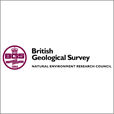Our partnership
Our Partnership
The EnvEast Doctoral Training Partnership (DTP) was created in November 2013 with funding from the Natural Environment Research Council (NERC). It draws together expertise from the Universities of East Anglia, Essex and Kent, together with a number of UK research organisations. The DTP aims to address some of the grand challenges facing contemporary society by providing advanced training for a new generation of science and business leaders working in the broad field of environmental science.
Partners

Founded in 1967, The University of East Anglia's School of Environmental Sciences, which leads the EnvEast DTP, is recognised nationally and internationally for its pioneering approach to interdisciplinary environmental sciences, for its breadth and for the quality of its research. It is ground-breaking in the UK for its early integration of physical, chemical, biological and social sciences into the study of natural and human environments.
The School of Biological Sciences is a vibrant and friendly academic community firmly embedded in the internationally renowned Norwich Research Park. It boasts extensive state-of-the-art research facilities as well as modern teaching laboratories. The School's world-leading research covers the full spectrum of biology, from biomedicine and developmental biology to microbiology, biochemistry, evolutionary biology, ecology and conservation.
The School of Mathematics has a strong international reputation for research with robust research links and co-operation with mathematicians in the rest of Europe, Israel, Russia, the United States and Australia. There are strong research groups in Applied Mathematics (fluid and solid mechanics, with biological, industrial, environmental, and physics applications) and in Pure Mathematics (group theory; representation theory; number theory; combinatorics; model theory; set theory and ergodic theory).
The School of International Development at the University of East Anglia is a leading global centre of excellence in research and teaching in international development. The School is renowned for its research on climate change, behavioural and experimental economics, environmental justice, social protection and wellbeing throughout the lifecourse.

The School of Biological Sciences conducts research on topics ranging from the structure and function of biomolecules to global environmental issues. Environmental and Plant Biosciences (EPB) at the University of Essex addresses global issues including climate change, ocean acidification, food security, the sustainability of agriculture and coastal ecosystems. EPB has a tradition of internationally recognized research excellence in the areas of marine primary productivity and biogeochemical cycling, coastal ecology, microbial ecology, microbial biotechnology, as well as photosynthesis and plant metabolism with allied molecular genetics applied to plant-environment interactions.

The Durrell Institute of Conservation and Ecology at the University of Kent, is the largest academic institute dedicated to conservation in the UK and sets itself apart from more traditionally-minded academic institutions with its clear mission to break down the barriers between the natural and social sciences in conservation, build capacity with a focus in the biodiversity rich developing countries and to focus on scientific research which informs practical implementation.
The National Centre for Statistical Ecology is a joint venture between the Universities of Kent, Cambridge and St Andrews. It is a Centre of international repute for the development and application of novel statistical methods in population ecology, integrating the partner Universities' research programmes and activities in statistical ecology. The centre aims to develop novel statistical methodologies for the analysis of complex data sets, as well as training PhD and postdoctoral researchers to work as statistical ecologists.
Core Partners
British Antarctic Survey (BAS)
BAS has a long and distinguished history of carrying out research and surveys in the Antarctic and surrounding regions, undertaking most of the British research on the frozen continent.

The British Geological Survey (BGS)
The British Geological Survey is the world's oldest national geological survey and the United Kingdom's premier centre for earth science information and expertise. It is the UK's premier provider of objective and authoritative geoscientific data, information and knowledge for wealth creation, sustainable use of natural resources, reducing risk and living with the impacts of environmental change.

The British Trust for Ornithology (BTO)
The BTO is an independent charitable research institute combining professional and citizen science aimed at using evidence of change in wildlife populations, particularly birds, to inform the public, opinion-formers and environmental policy- and decision-makers.

Centre for Ecology and Hydrology (CEH)
The Centre for Ecology & Hydrology is the UK's Centre of Excellence for integrated research in terrestrial and freshwater ecosystems and their interaction with the atmosphere.

Centre for Environment, Fisheries and Aquaculture Science (Cefas)
As the UK's most diverse applied marine science centre, Cefas help to shape and implement policy through internationally renowned science and collaborative relationships that span the EU, UK government, non-governmental organisations, research centres and industry.

The John Innes Centre (JIC)
The John Innes Centre is an independent, international centre of excellence in plant science and microbiology. Its mission is to generate knowledge of plants and microbes through innovative research, to train scientists for the future, to apply knowledge to benefit agriculture, the environment, human health and well-being, and engage with policy makers and the public.

The Marine Biological Association (MBA)
The Marine Biological Association aims to promote scientific research into all aspects of life in the sea, including the environment on which it depends, and to disseminate to the public the knowledge gained.

The Met Office
The Met Office is the UK's National Weather Service with a long history of weather forecasting and has been working in the area of climate change for more than two decades.

Plymouth Marine Laboratory (PML)
Plymouth Marine Laboratory undertakes leading international research to respond to societal needs and to promote stewardship of the world ocean.

Plymouth University Marine Institute
Plymouth University Marine Institute represents all marine and maritime activity across Plymouth University. With a “hilltops to deep-sea” remit it represents all of the university’s NERC-relevant environmental research, but has a main focus on catchments and coasts.

The Sir Alister Hardy Foundation for Ocean Science (SAHFOS)
SAHFOS is an international charity that operates the Continuous Plankton Recorder (CPR) survey. The Foundation has been collecting data from the North Atlantic and the North Sea on biogeography and ecology of plankton since 1931. More recently, as the Foundation has become more involved in international projects, work has been expanded to include other regions around the globe.

Contributing Partners
ADAPT Low Carbon Group - The Adapt Low Carbon Group brings together a broad range of expertise and builds on the widely acknowledged successes of the University of East Anglia's business activities in the low carbon sector.
Birdlife International - BirdLife International is the world's largest nature conservation Partnership. Together they are 121 BirdLife Partners worldwide – one per country – and growing.
Chester Zoo - Wildlife conservation is at the heart of everything Chester Zoo does. The Zoo uses scientific evidence to help identify and address many of the challenges our natural world faces, and aims for its conservation research to help in decision making that improves the management of the animals and plants in their care, influences the sustainability of wild populations, and inspires others to join with them in the challenge to Act for Wildlife and protect the living world.
Earlham Institute - Earlham Institute (formerly The Genome Analysis Centre) is a research institute focused on the application of state of the art genomics and bioinformatics to advance plant, animal and microbial research to promote a sustainable bioeconomy. Earlham Institute is a hub for innovative bioinformatics founded on research, analysis and interpretation of multiple, complex data sets.
Forestry Commission - Forest Research are one of the world's leading centres of research into
woodlands and forestry.
Fudan Tyndall Centre - The Tyndall Centre has initiated a new partnership with the Research Institute for Global Environmental Change (RICE) at Fudan University, Shanghai, one of the big three Universities in China. This expansion of the Tyndall Centre to China creates new opportunities for collaborative research by bringing together UK and Chinese researchers from across the scientific, engineering, social science and economic communities.
Gardline Marine Sciences - Established in 1969, Gardline Shipping Limited (GSL) is the parent company of a diverse group of multi-disciplinary organisations involved in a range of activities that include satellite communications, marine sciences, security, ship building, dry dock engineering, geographical information systems, digital mapping and vessel charters.
National Centre for Atmospheric Science (NCAS) - The National Centre for Atmospheric Science (NCAS) is one of the Natural Environment Research Council's (NERC) research centres. The Centre increases knowledge of key environmental issues including: climate change, weather processes and atmospheric composition including air quality.
Royal Society for the Protection of Birds - The RSPB is the country's largest nature conservation charity, inspiring everyone to give nature a home.
The Sainsbury Laboratory (TSL) - The Sainsbury Laboratory is a charitable company of approximately 70 research scientists and support staff and a world leader in plant science. TSL is dedicated to making fundamental discoveries about plants and how they interact with microbes and viruses.
The Satellite Applications Catapult is an independent innovation and technology company, created to foster growth across the economy through the exploitation of space. We help organisations make use of and benefit from satellite technologies, and bring together multi-disciplinary teams to generate ideas and solutions in an open innovation environment.
Weatherquest is a privately owned weather forecasting and weather analysis company based in Norwich and located on the University of East Anglia campus. They provide a wide variety of bespoke weather products to everyone from large corporations to individuals.

